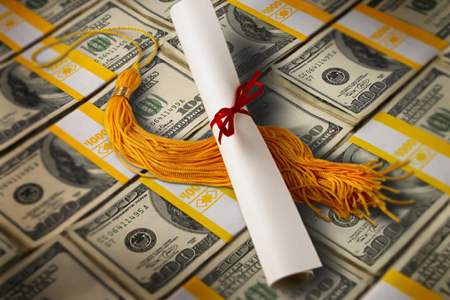Student loan debt has been part of an ongoing debate when it comes to the subject of getting them discharged. While the debt in most cases cannot be discharged, a bankruptcy filing may help you gain advantages in repaying what is owed. The only way student loan debt is discharged or eliminated is when an “undue hardship” has been created making it virtually impossible for the loan to be repaid.
Chapter 13 bankruptcy may help in getting your student loan debt repaid, whether it’s a public or private loan. Chapter 13 is a repayment plan that gives debtors up to 5 years to pay on outstanding debt. The plan often helps debtors obtain lower payments that are easier to manage and is a good option for those looking to retain personal property such as a house or vehicle.
For student loans, Chapter 13 may help you get reduced monthly payments, lower than what the creditor is seeking. During the Chapter 13 case this helps debtors get relief from aggressive collection attempts from creditors. In some cases, the creditor may agree to better terms than previously offered on the loan. Usually when Chapter 13 cases are completed the remaining amount of debt owed is discharged; since student loan debt is non-dischargeable the creditor may agree to rehabilitate the debt by restoring normal payments.
While student loan debt can’t be erased, bankruptcy will eliminate other qualifying debts so you can concentrate on making regular payments on what’s left of your loan. Rules and regulations regarding personal loans and student debt may seem complicated but reviewing your situation with an experienced bankruptcy attorney can give you a better outlook on what to expect.
